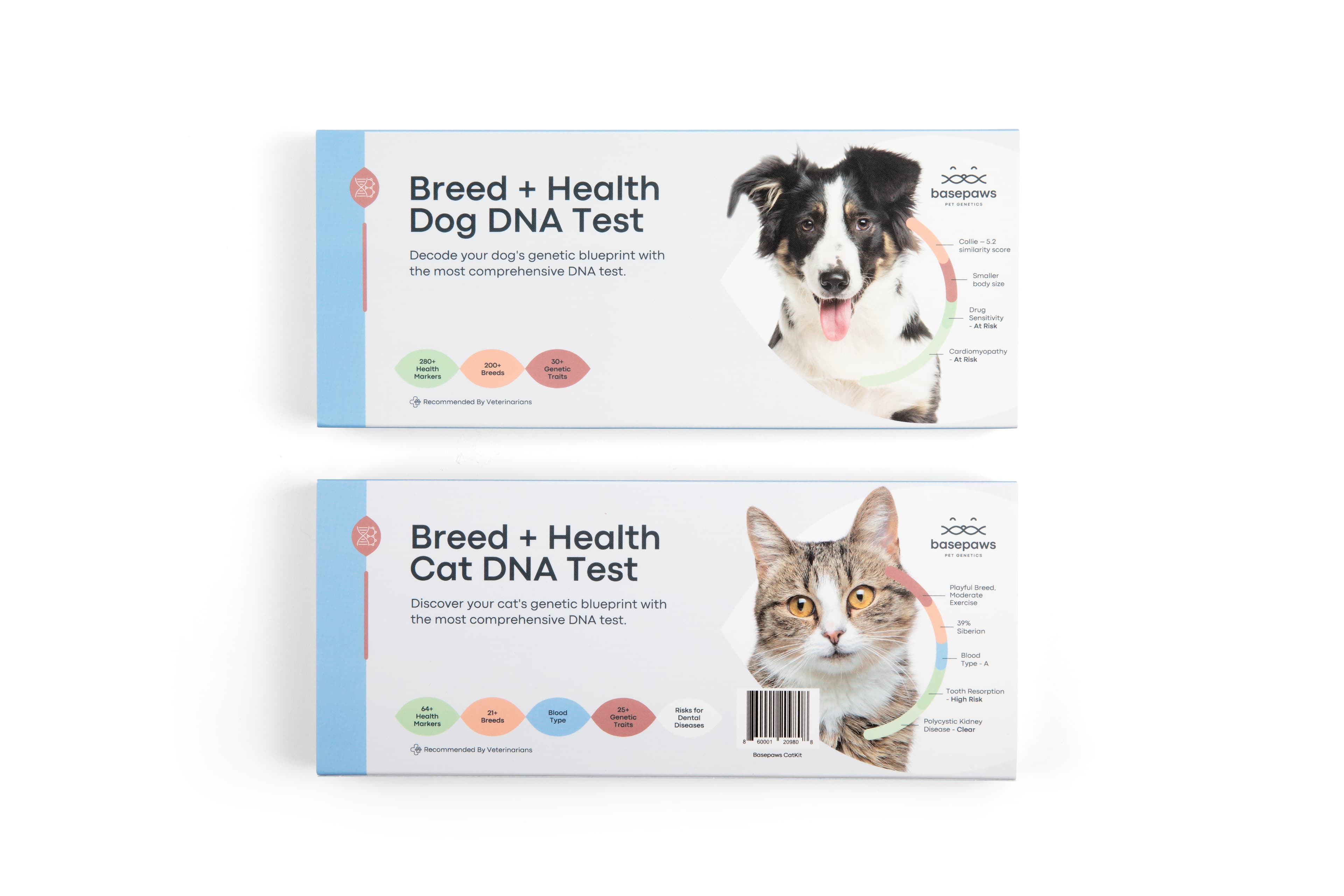"Basepaws is so grateful for our pet parent community of citizen scientists! Their participation in our research is helping to change the future of early detection and diagnosis of diseases in cats, one DNA sample at a time."

We are proud to partner with pet parents and with pet health professionals on research that delivers actionable knowledge to help people make empowered, proactive decisions for the health and well-being of their pets.
Help Basepaws help all pets by participating in genetics research that supports the development of affordable screening tests that are painless for cats and dogs, and easy for pet parents to use for earlier detection of disease. These screening tests could provide more opportunities to address issues sooner with a veterinarian and implement a treatment plan that addresses pet’s unique health needs.
Review the programs below to learn more about how you can participate in research that has the potential to create a healthier, happier future for pets everywhere.

Feline atopic dermatitis (AD), also known as feline atopy or non-flea non-food allergic dermatitis, is the second most common allergy in cats (after flea allergy dermatitis). Estimates reveal that this disease affects 12.5 percent of the domestic cat population. If your cat has been diagnosed with AD, their oral swab sample could help us to better understand the biology behind this highly prevalent disease.
CKD is a major feline health issue from which one in 30 cats suffer, often going undiagnosed in cats until the illness reaches a more advanced stage. If your cat has been diagnosed with CKD, especially before the age of five, we welcome your participation in this study.
Food allergic dermatitis often presents with year-round skin inflammation and itching-related discomfort. Unfortunately, this condition is an increasingly common problem seen in cats. If your cat is suffering from food allergic dermatitis, we welcome you to participate in our study to help us better understand the genetics and oral microbiome factors that may be associated with food allergies in cats.
Osteoarthritis is a chronic degenerative disease that affects the tissues that comprise a joint, such as cartilage, joint capsule, and surrounding bone. The joints most commonly affected in cats are the hip, knee, ankle, and elbow.
Is your cat healthy? Basepaws is looking for cats that have not been diagnosed with any dental, chronic, or systemic diseases, and do not currently present with an active illness (or have within the last month). If your cat is one year of age or older and has received a clean bill of health from the veterinarian within the past six months, you may qualify for this feline health research effort.

Pet parents of qualifying participants will get a FREE cat or dog Breed + Health DNA test to collect a sample, and a free Basepaws report to help you get to know your kitty better—inside and out! Shipping of a test is free both ways; however, Basepaws can only accommodate free shipping for pet parents based in the U.S.
"Basepaws is so grateful for our pet parent community of citizen scientists! Their participation in our research is helping to change the future of early detection and diagnosis of diseases in cats, one DNA sample at a time."
